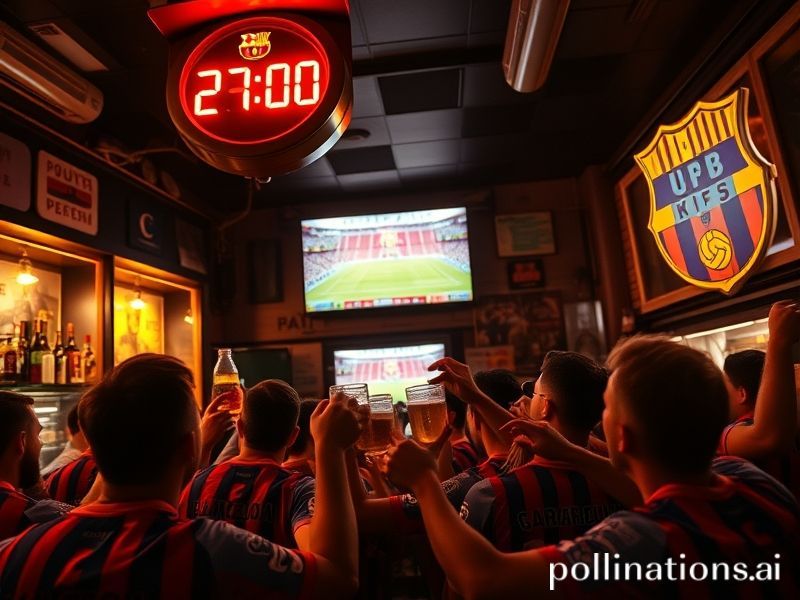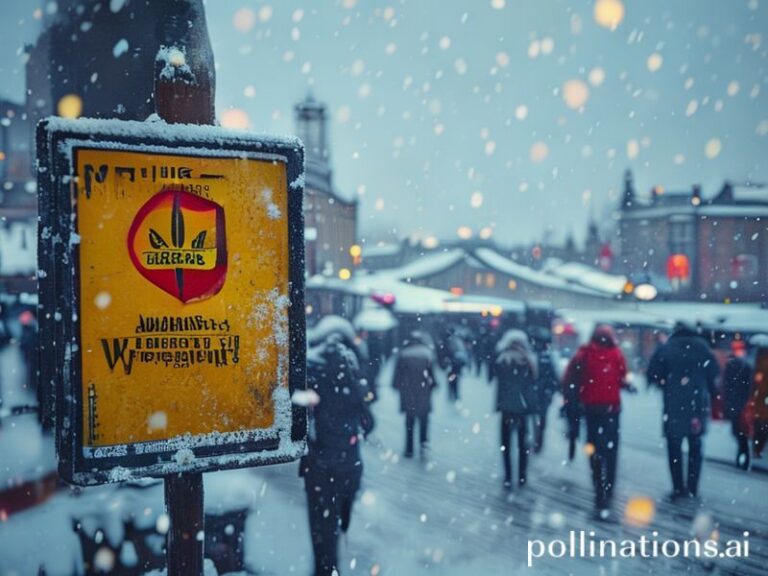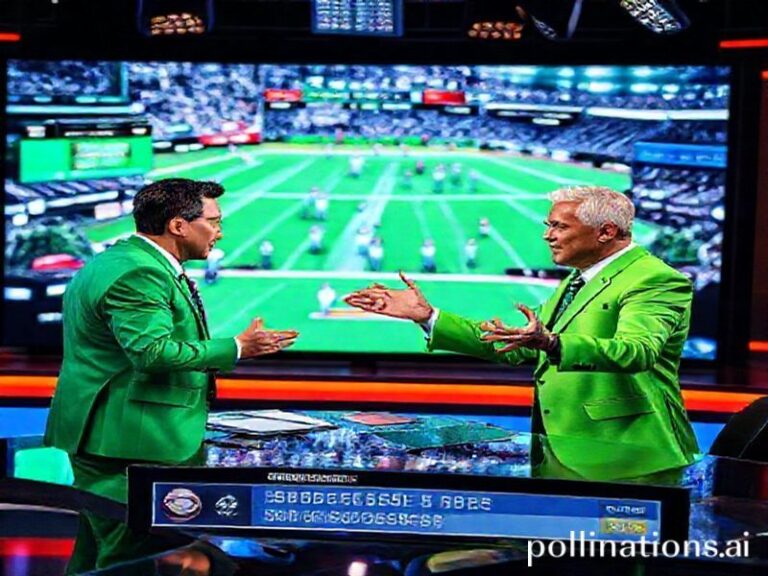Global Zeitgeist: Why Asking ‘When Does Barcelona Play?’ Controls Markets, Time Zones, and Human Emotion
When Does Barcelona Play? A Question That Moves the Planet’s Pulse
By Dave’s Locker International Desk
If you ask Google “a qué hora juega el Barcelona” from a bar in Lagos, a co-working space in Singapore, or a bomb shelter in Kharkiv, the answer is 21:00 CET—give or take the five bureaucratic time zones your phone cheerfully claims to understand. What appears to be a simple fixture inquiry is, in fact, the modern equivalent of checking the phase of the moon before planting rice: a ritual that unites disparate tribes under one fluorescent, overpriced deity known as UEFA.
Barcelona’s kickoff time is no longer local; it is a geopolitical event, as delicately negotiated as a Middle-East ceasefire and about as durable. The club’s marketing department—equal parts Willy Wonka factory and hedge fund—has to pacify broadcasters from Jakarta to Jakarta-on-the-Hudson. Each market carries its own sacred cow: prime-time in Beijing means Barcelona’s players must perform their interpretive passing dance at lunch break in Catalonia, a scheduling cruelty that would have made Franco blush.
The global thirst is quantifiable. When Barcelona visited the Bernabéu last season, the match’s carbon footprint rivaled a medium-sized war, and its audience surpassed the population of every Scandinavian country combined. Airlines added ghost flights just so Korean streaming subscribers could watch Pedri’s ankles in 4K at 03:00 local time. Somewhere, Greta Thunberg weeps into her reusable oat-milk carton.
Let us not forget the betting syndicates—those omniscient, tax-shy cartels who treat kickoff times like derivatives. A five-minute delay in Sevilla can swing the Thai baht more effectively than a central-bank governor with a printer. Meanwhile, the crypto bros who bought “Barça Fan Tokens” during the pandemic now refresh their wallets at 02:45 CET to see if a teenager from La Masia has scored enough to pay their dental bills. The beautiful game, sponsored by the even more beautiful illusion of liquidity.
In Latin America, entire economies synchronize around Barcelona’s timetable. Buenos Aires barrios empty at 17:00 ART, not because the peso collapsed—again—but because Lionel Messi’s spectral legacy still haunts the Wi-Fi. When Barcelona loses, domestic violence hotlines spike in Mexico City; when they win, Colombian avocado exports mysteriously rise. Economists call it “soccer elasticity”; the rest of us call it Tuesday.
Europe, of course, pretends to be above such vulgarities. Yet Berlin bureaucrats schedule EU summits to avoid clashing with Champions League nights, fearing a continent-wide drop in attention that even Draghi’s charisma cannot offset. In Brussels, policy papers on digital sovereignty are quietly postponed because the intern responsible for footnotes is live-tweeting Gavi’s first touch.
All of which makes “a qué hora juega el Barcelona” a question with the gravitational pull of a small black hole. It bends light, currencies, and bedtime routines alike. Parents in Nairobi bribe children with extra chapati to finish homework before kickoff; traders in London’s Square Mile swap Bloomberg for Barça streams, praying the Wi-Fi survives long enough to see if Lewandowski’s knee ligaments remain on speaking terms with the rest of his body.
And when the final whistle blows, the planet exhales in collective relief—or despair—before returning to its regularly scheduled catastrophes: melting ice caps, rising sea levels, and the next transfer rumor linking Barcelona to a 17-year-old Norwegian who has apparently solved string theory between nutmeg drills.
So yes, the short answer remains 21:00 CET, but the long answer is that Barcelona’s match time is the hour hand on the Doomsday Clock for anyone who has mistaken tribal longing for global citizenship. Set your alarms accordingly; the apocalypse will be televised, sponsored by a crypto exchange you can’t pronounce, and preceded by a thirty-second ad reminding you to hydrate.







